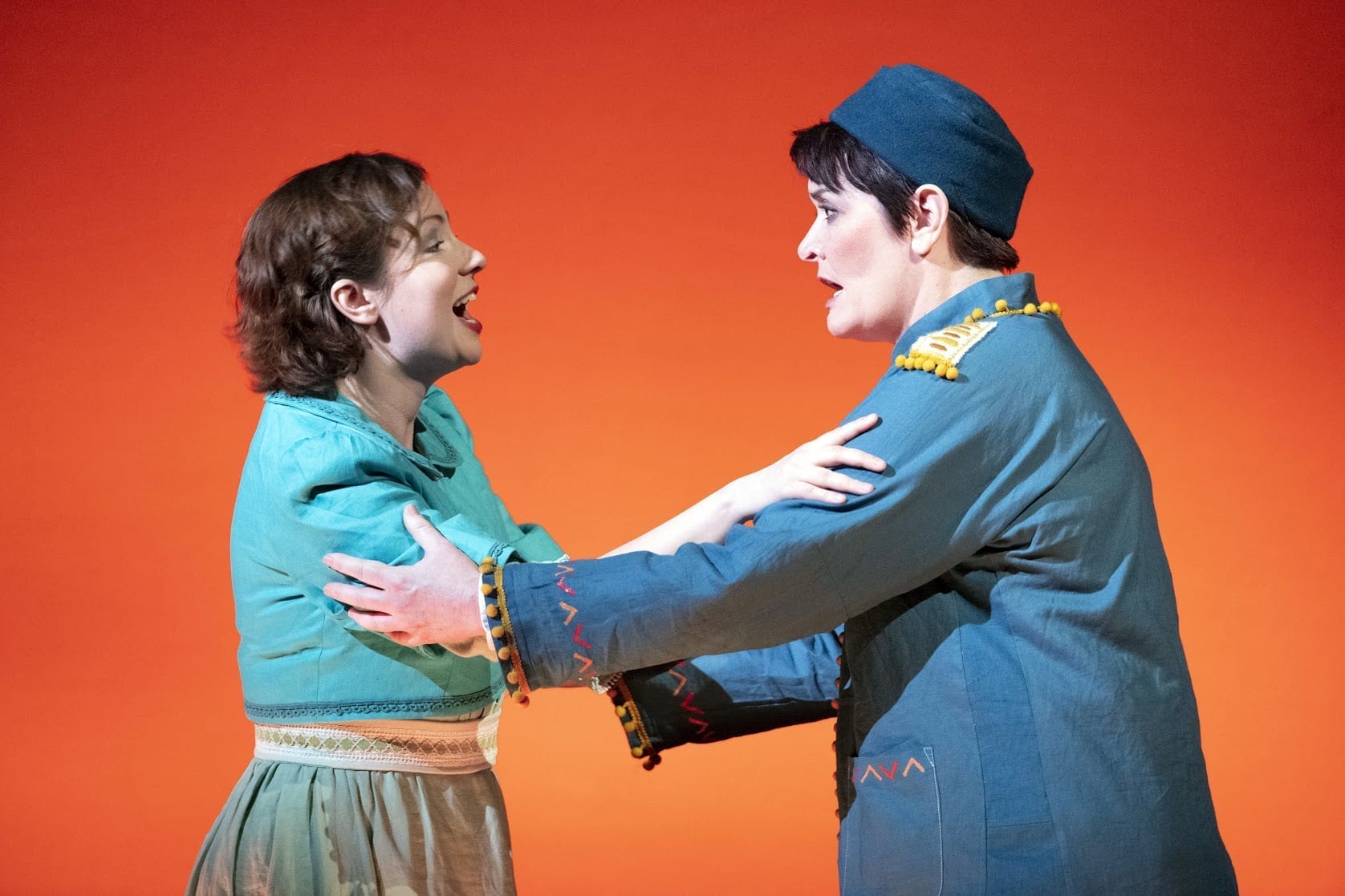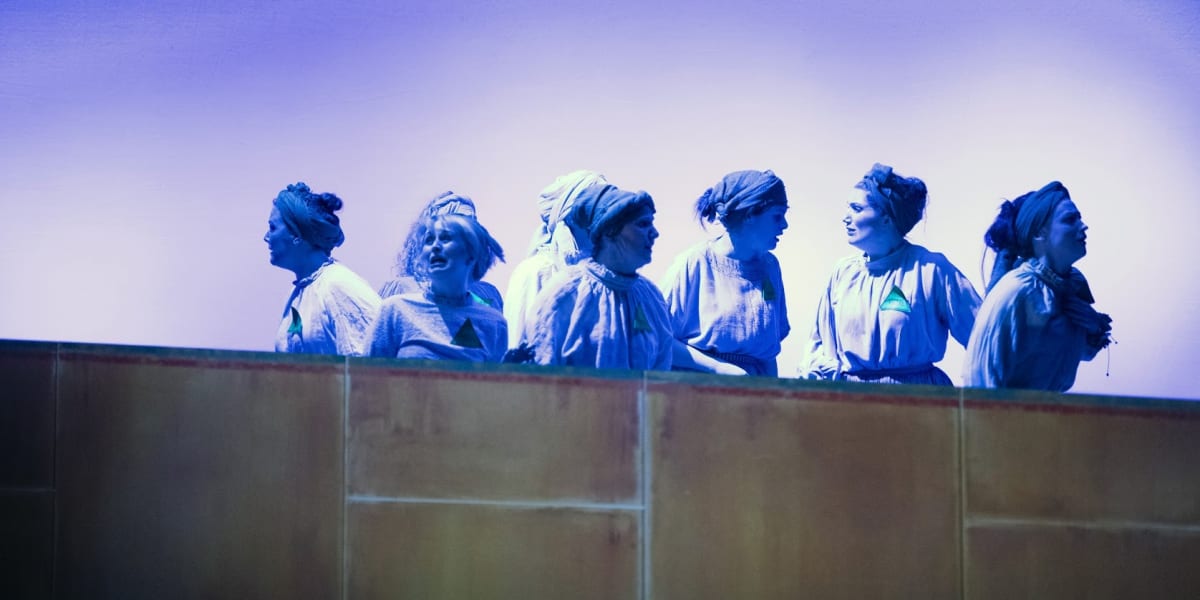English Touring Opera is an indispensable part of the opera scene in the UK. Both their touring schedule – more than 20 locations between now and June – and their talent for turning rarely-performed gems into hits – give them a deserved place in the affection of opera lovers. This intriguing production of Idomeneo deserves full houses around the country.
Idomeneo King of Crete is often described as Mozart’s first mature opera. He was 25 and, having been dragged around Europe as a child by his pushy dad, he had already absorbed all the musical fashions from France, Italy, and Germany. Though this work is based on the stodgy traditions of opera seria, Mozart’s genius cannot be constrained and his music gradually draws us into the conflict between Idomeneo, his son, and the two women who love his son. In this production, the sublime quartet in Act 3, which bends the old rules, is simply wonderful and will win over any opera goer, even those who love Verdi best.
Idamante is waiting for his father King Idomeneo to return from the sack of Troy. Here in Crete, he has two admirers – the captive Trojan princess Ilia and the Greek princess Elettra, daughter of murdered Agamemnon. Delayed by storm and shipwreck, Idomeneo rashly promises the god Neptune that, if he is spared, he will sacrifice the first person he meets on his return to his homeland. That person turns out to be his beloved son. Duty and love are in conflict and the Cretan people are drawn into the suffering inflicted by the angry god.
The four key roles are all taken by singers of the highest quality. It is difficult to fault Christopher Turner’s performance as the king – his is a powerful tenor voice with an impressive range that means that he rings out the high notes but sounds as if he could sing baritone parts just as well. Catherine Carby takes the role of Idamante, sung by a castrato in the original Munich performances, and invests the young prince with a dignity-in-torment that reaches just the right note of resignation in the execution scene. Galina Averina is a fresh and appealing Ilia with a lovely soprano voice – her attempt to comfort her rival Elettra in the final scene is a fine moment. And special praise is due to Paula Sides for a storming performance as the tormented Elettra, singing with lush tone and conveying her anger without any loss of vocal beauty.
The production design is striking but perhaps shows the demands of having a set that can be shipped around the country. No point in complaining about the lack of a sea monster but confining the chorus – who sang with all the musical assurance we expect from ETO – to the back of the stage until the final joyful moments of the opera was a mistake. However, given the uncomplicated emotions of the protagonists – none of the subtlety of the great Viennese masterpieces of Mozart – the choice to leave it to the singers, without the fussy choreography that has become popular for reviving opera seria, makes sense.
Jonathan Peter Kenny conducts with total assurance – his programme notes (and thanks to ETO for such an informative programme) demonstrate the depth of his love for this music. And it is only right that, despite the success of the whole piece, it is a night that belongs to the singers – and to Mozart.

